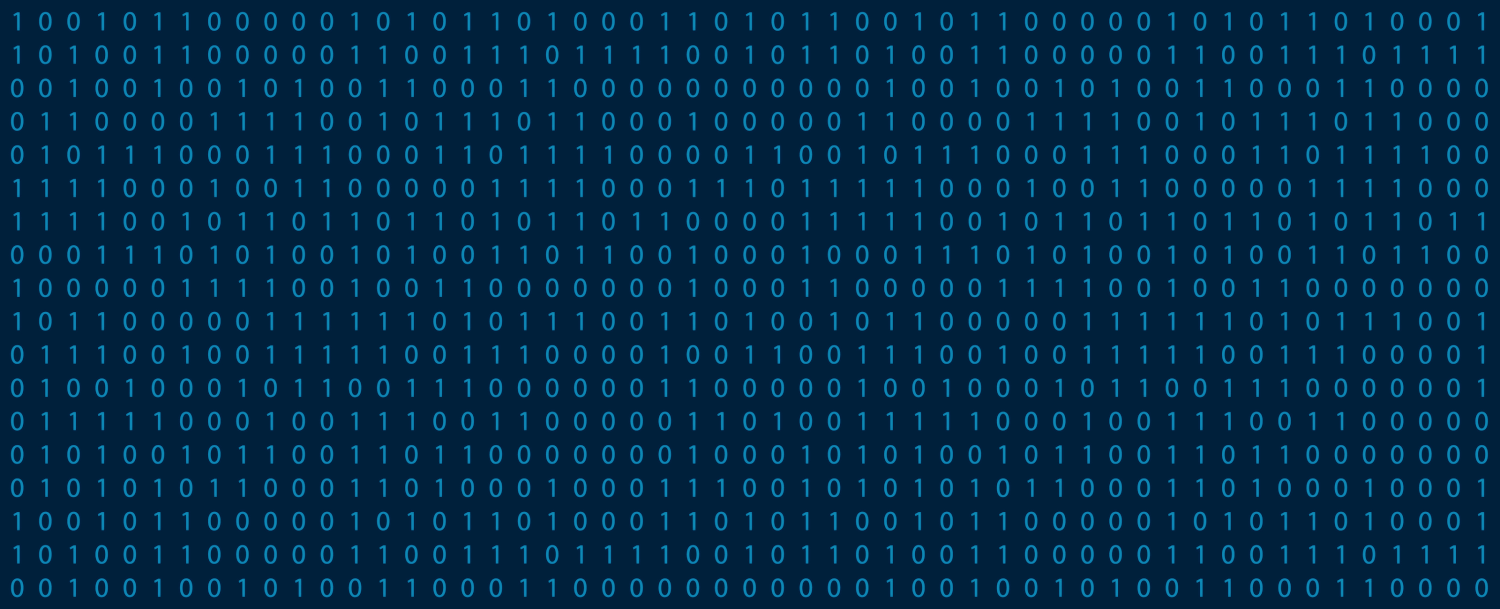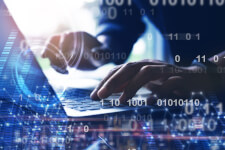Digital
Digital refers to information represented as ones and zeros, or binary code. Modern electronic devices store, process, and transmit data digitally. For example, computers, smartphones, HDTVs, and AVRs are all digital devices since they process digital data.
While ones and zeros may seem rudimentary, digital data can represent almost anything you can imagine, from text to images, to video, to generative AI chatbots. As a simple example, the letter "T" is represented digitally in ASCII code as 01010100.
The word "TechTerms" is represented as:
01010100 01100101 01100011 01101000 01010100 01100101 01110010 01101101 01110011Each 1 or 1 is a bit, while each 8-bit set is a byte. If it takes one byte to represent a single character, you can imagine how many bytes it takes to store a document, image, or video. That's why data storage is often measured in megabytes and gigabytes.
Digital vs. Analog
Humans perceive the world in analog. When you view the world around you, you see images and hear sounds as continuous streams of information. Digital devices, however, convert this continuous information into discrete binary code. The accuracy of the digital representation involves two key factors:
- Resolution: Refers to the number of pixels captured in a digital image. Higher resolution images have more pixels.
- Bit Depth: Determines the amount of color information captured for each pixel. Higher bit depths allow for more colors and finer gradations.
Higher resolutions and bit depths result in more accurate digital representations of analog data. For example, a basic digital camera might capture photos with a 10-megapixel resolution and 8-bit depth. A professional digital camera may capture images with a 40-megapixel resolution and 14-bit depth per color channel. Photos taken with the professional digital will appear detailed and vibrant compared to those captured with a standard camera.
Advantages of Digital Information
Although digital signals are estimations of analog signals, they offer significant advantages:
- Precision: Digital data can be copied, edited, and moved without any loss in quality. Editing digital audio and video is much faster and less expensive than editing analog media.
- Durability: Digital information is less susceptible to degradation over time compared to analog data. For example, the sound from an analog record or cassette tape may change the more it is played, while the sound from a CD will stay the same.
- Speed: Digital transmission lines, such as fiber optic cables, offer data transfer rates that are hundreds of times faster than analog lines. This increased bandwidth is what allows millions of people to communicate over the Internet in realtime.
The benefits of digital technology make it the preferred method for storing and processing information in today's world.

 Test Your Knowledge
Test Your Knowledge